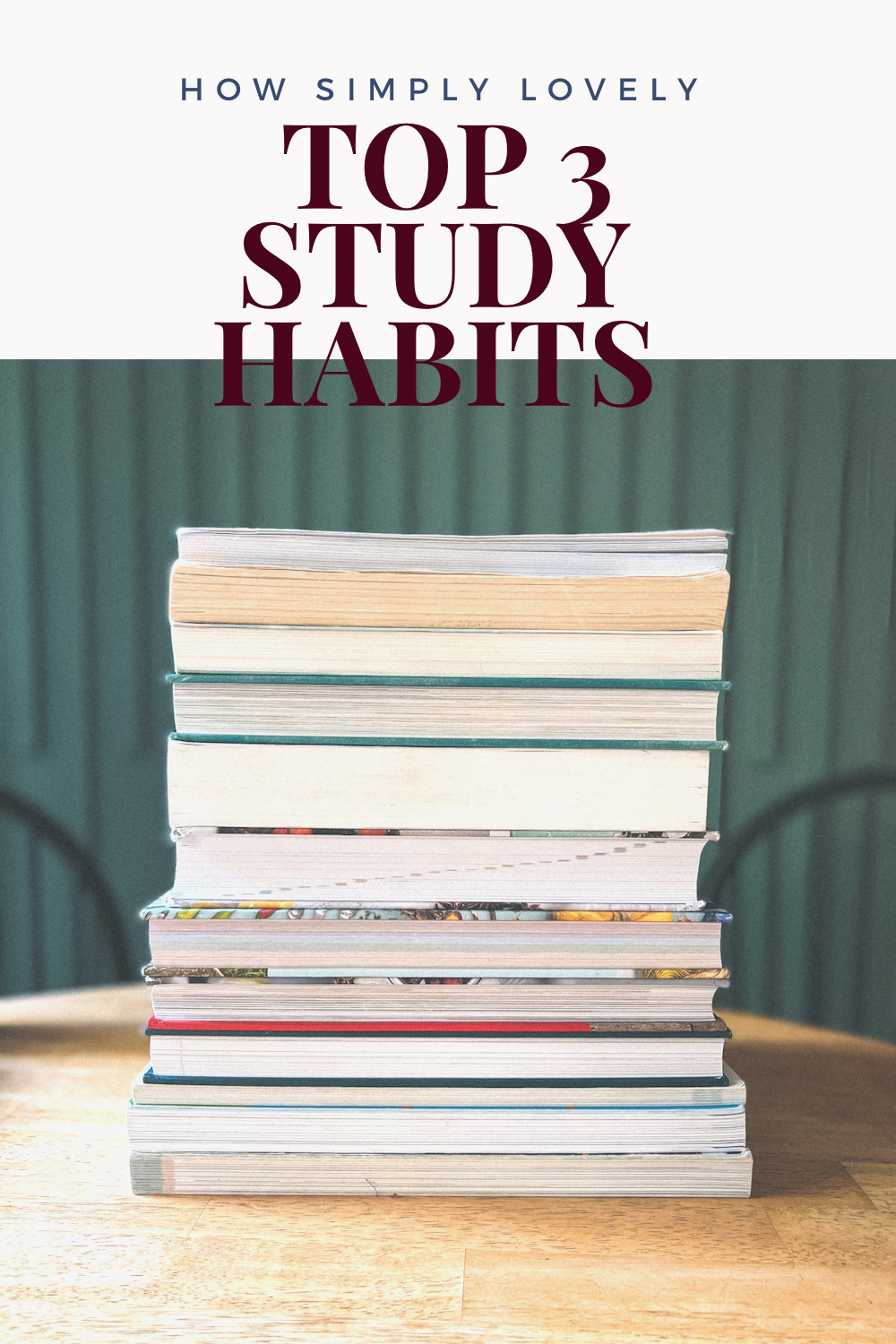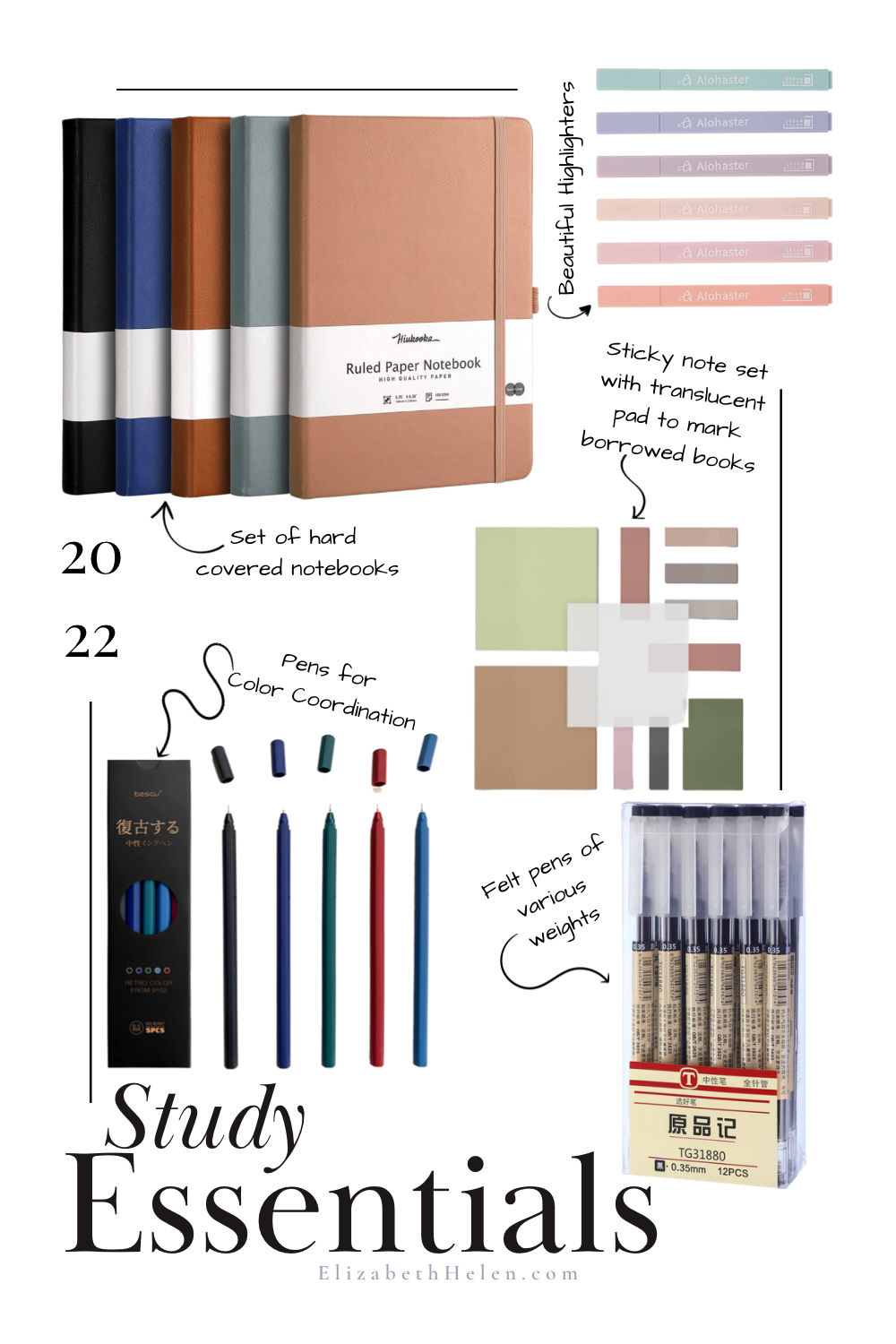
I’ve decided to go back to school—sort of.
As children start their new school year, a sense of nostalgia always emerges as parents stress about getting their children all situated for the upcoming academic year. I remember my school days and realize how little I remember what was taught. The truth was, I was never given the right tools how to best study the materials at hand. The goal was the complete an assignment and ace the exams. But we never retained the information.
Whether you have struggling children, are a student of academia, or are a lifelong learner. Here are 3 tips on how to improve your study skills.

Notebook Set, Highlighters, Sticky Notes, Colored Pens, Felt Tip Pens
1. Take Notes
As evident as this point may seem, some students don’t know how to take notes. It wasn’t until college that I figured out a system I could later comprehend. Whether you choose the Outline form, which is most common, Cornell Method, or a Map Chart, I recommend trying various methods and sticking with what you understand best. The University of Tennessee breaks down 5 different forms of note-taking that I highly recommend analyzing.
Use different pen weights (millimeters) or coordinate through color. I find that my mind registers information with ink compared to graphite. Highlight information that stands out in the text. If you can’t mark your book, use translucent sticky notes over the area you wish to take notes.
2. Use Multiple Medias
We are no longer limited in expanding our education through the walls of an academic building, with access to YouTube, Podcasts, Audiobooks, Online courses, etc. We now have the ability to combine a variety of resources as to expand our knowledge of a subject.
For my personal example, I am studying the History of Modernity. As I begin with the French Revolution, I’ve added Documentaries from YouTube, my old college textbooks, and a lecture series by George Grant through the app MyCanon+. Alongside this process, my husband and I are reading together A Tale of Two Cities by Charles Dickens. In reading Classical Literature written and based on the specific historical period I am studying, it helps bring history to life.
3. Journal
Daily journal entries are a great brain exercise. At the end of each day, log 150 words describing what you have learned that day. This practice forces you to look back and remember your studies, what was most memorable or to note down a piece of information that you are having a more difficult time remembering. Remember that handwriting creates a better connection to the brain than typing the information down.
What are your thoughts on education today? Are there any study habits that you have found most helpful? Let me know in the comments below!